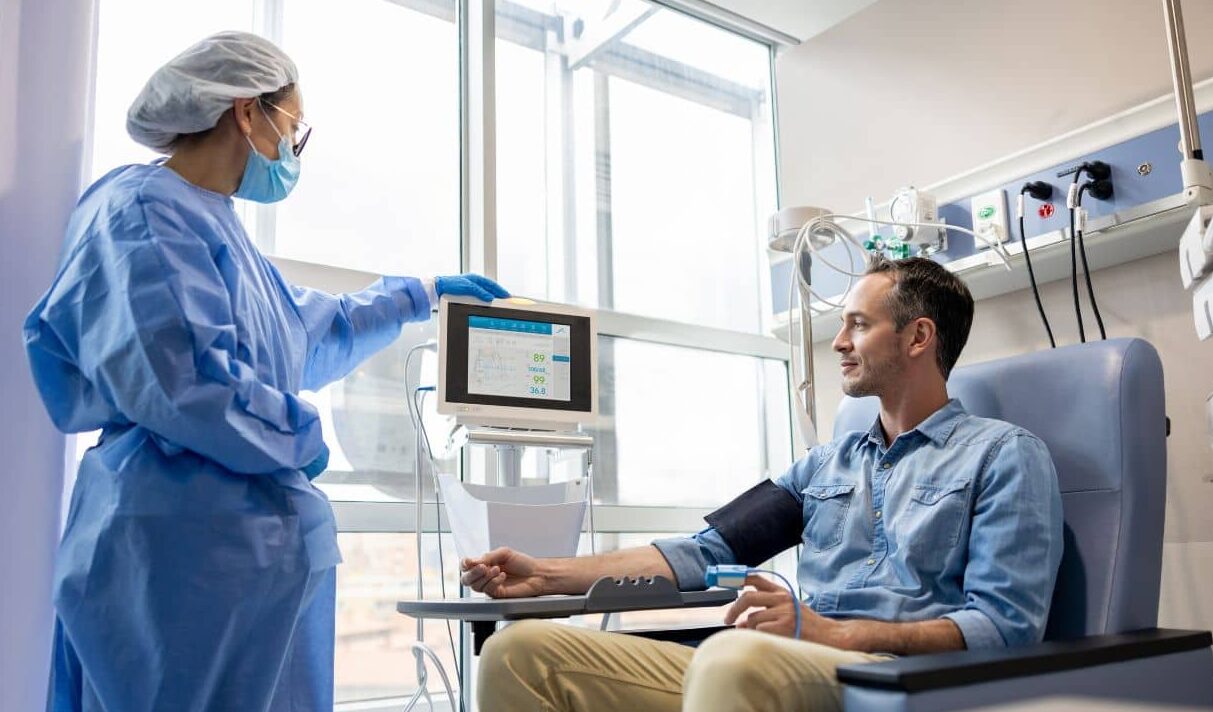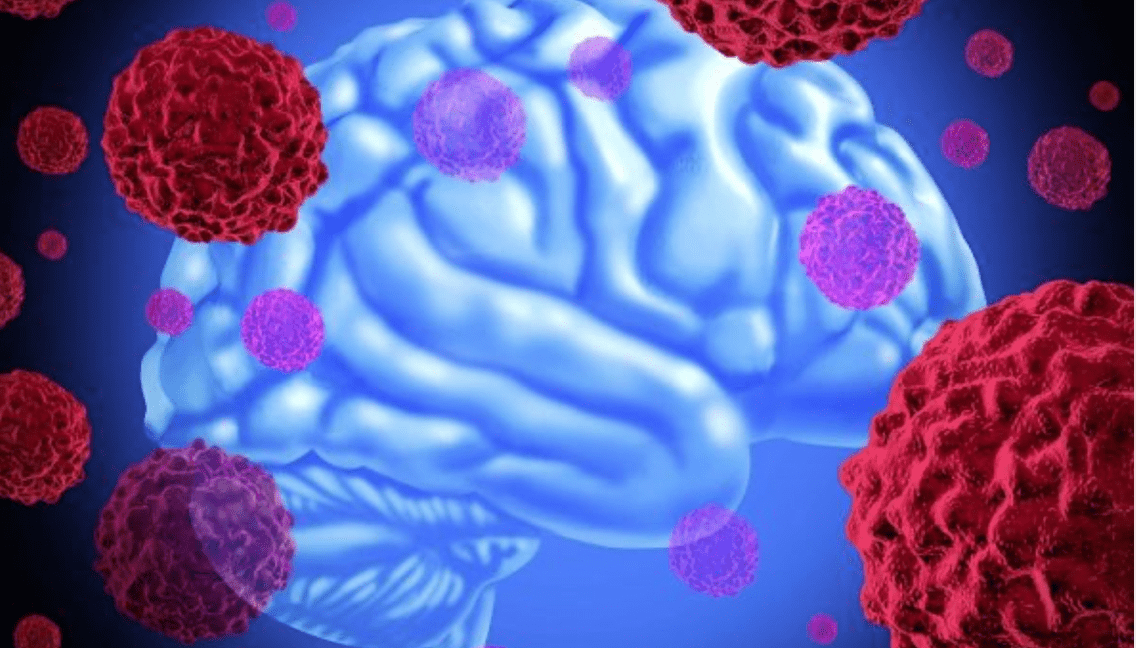-
 News
When glucose levels are low, chemotherapy ceases to affect cancer cells
News
When glucose levels are low, chemotherapy ceases to affect cancer cells
-
 News
Excessive treatment of prostate cancer in older men may reduce quality of life without increasing its duration
News
Excessive treatment of prostate cancer in older men may reduce quality of life without increasing its duration
-
 News
Brain cancer can be cured by viruses
News
Brain cancer can be cured by viruses
-
 News
Ways to reduce lymphatic pain in breast cancer have been found
News
Ways to reduce lymphatic pain in breast cancer have been found
-
 News
Scientists have turned bacteria into a powerful weapon against cancer
News
Scientists have turned bacteria into a powerful weapon against cancer
All news
Neurosurgery clinics in Germany
German neurosurgeons specialize in the diagnosis and treatment of diseases of the nervous system. In German clinics, neurosurgery specialists use innovative therapy for diseases, injuries, tumors and age-related changes in the central and peripheral nervous system.
Neurosurgeons in Germany perform operations on the smallest structures of the body. German hospitals are equipped with modern equipment for microsurgery, stereotaxic and robotic surgery. The use of up-to-date treatment protocols and the latest equipment also contributes to quick rehabilitation.
MedTour patients recommend clinics for the treatment of neurosurgical in Germany:
Doctors for the treatment of neurosurgery in Germany
Frequently Asked Questions
Benefits of medical care in Germany:
- Highly qualified specialists;
- Up-to-date treatment protocols;
- Modern equipment in both multidisciplinary and highly specialized clinics;
- Compliance with international standards of service quality and safety;
- Performing mostly minimally invasive interventions.
«Stereotaxic» refers to minimally invasive neurosurgery. Such operations are performed by highly specialized doctors. A feature of stereotaxic operations is the most accurate access to any brain structures without large incisions.
Stereotactic surgeries are guided by CT or MRI. During surgery, doctors continually take pictures of the anatomical structures of the brain to ensure the correct placement of the surgical instruments.
- To remove tumors and brain metastases;
- With arteriovenous malformations;
- With Parkinson’s disease;
- With epilepsy;
- Tourette syndrome therapy;
- Essential tremor therapy;
- For brachytherapy, biopsy and deep brain stimulation (DBS).
The final amount of treatment will depend on:
- Choosing a clinic and doctor;
- The type of disease and the degree of its severity;
- Complex of diagnostic procedures;
- Choosing a treatment method;
- Duration of rehabilitation.
Examples of the cost of neurosurgery in Germany:
- Removal of intervertebral hernia – from $17 800;
- Transnasal (through the nose) removal of a brain tumor – from $19 000;
- Operation on a Da Vinci robot – from $20 000;
- Surgical treatment of epilepsy – from $27 500;
- Removal of a brain tumor – from $28 600;
- Glioblastoma surgery – from $31 500;
- Glioblastoma surgery – from $34 000;
- Deep brain stimulation (DBS) stimulation – from $39 200.
You need to leave a request on the MedTour platform. You will be contacted by a coordinating doctor who will help you choose the best clinic and a highly qualified doctor. Consultation with the coordinating doctor is free. MedTour does not take a commission for the services provided. Patients pay for diagnostics and treatment at the clinic’s cash desk.
Diagnostic methods used by neurosurgeons in Germany
German doctors have access to modern high-precision methods for diagnosing various diseases. Clinics in Germany are equipped with the latest technology to carry out:
- Optical coherence tomography and multiphoton fluorescence tomography;
- Magnetic resonance imaging (MRI) and magnetic encephalography (MEG);
- Positron Emission Tomography (PET)/PET/CT;
- Computed tomography (CT);
- Electroencephalography (EEG);
- Electromyography (EMG);
- Electrophysiological examination of the brain;
- Lumbar puncture;
- Biopsies.
Spine and spinal cord neurosurgery in German clinics
Clinics in Germany successfully treat:
- Neurodegenerative diseases: osteochondrosis, spinal stenosis, scoliosis, kyphosis, spondyloarthrosis;
- Inflammatory diseases: spondylitis, spondylodiscitis, etc.;
- Benign and malignant tumors of the spine;
- Spine injury;
- Spinal vascular malformations;
- Herniated discs.
Brain neurosurgery in Germany
German neurosurgeons treat:
- Brain tumors:
- Glioblastoma;
- Astrocytomas;
- Oligodendrogliomas;
- Tumors of the base of the skull:
- Neuromas;
- Meningiomas;
- Pituitary adenomas;
- Craniopharyngiomas.
- Injuries to the brain and base of the skull;
- Cerebrovascular diseases:
- Aneurysms
- Vascular malformations.
Vascular neurosurgery in Germany
In German clinics you can undergo treatment:
- Intracranial hematomas;
- Aneurysms and arteriovenous malformations;
- Anomalies of the carotid arteries;
- The consequences of ischemic and hemorrhagic stroke;
- Other disorders of cerebral circulation.
In addition, neurosurgical medical centers in Germany treat:
- Epilepsy, Parkinson’s disease;
- Chorea, athetosis, various forms of dystonia and other hyperkinetic disorders;
- Chronic pain syndromes (back pain, headaches);
- Neurofibromatosis;
- Speech, visual, movement disorders after injuries;
- Other neurological diseases that drastically reduce the quality of life of patients and limit their physical, social and professional capabilities.
Modern methods of neurosurgical treatment in Germany
Functional neurosurgery
Doctors use neuroimplants to influence the activity of the affected brain (brain and spinal cord). Using this method, neurosurgeons restore impaired functions.
Fields of application of functional neurosurgery:
- Deep brain stimulation (DBS) – for movement disorders (Parkinson’s disease, tremors, dystonia).
Doctors insert electrodes into the brain, which, using electrical impulses, activate or deactivate parts of the brain. In this way, excessive muscle tension can be controlled. A pulse generator is placed under the skin of the patient’s abdomen or chest, to which the electrodes are connected, and with the help of which the arrival of pulses is monitored.
- Spinal cord stimulation (SCS) – for injuries and lesions of nerves, nerve plexuses.
An electrode is inserted into the patient’s spinal canal for pain relief. The impulses from the pulse generator prevent the transmission of pain from the pain fibers.
- Stimulation of the vagus nerve – for epilepsy, which does not respond to conservative and surgical treatment.
Through a small incision in the skin, the doctor connects a thin electrical probe to the patient’s vagus nerve. Electrical stimulation of the nerve through a tube suppresses epileptic seizures. Also, a pulse generator is placed under the skin.
- Transcranial magnetic stimulation (TMS) – for severe pain syndromes.
Non-invasive method of stimulating neurons in damaged areas of the brain with an alternating magnetic field.
Published:
Updated:







